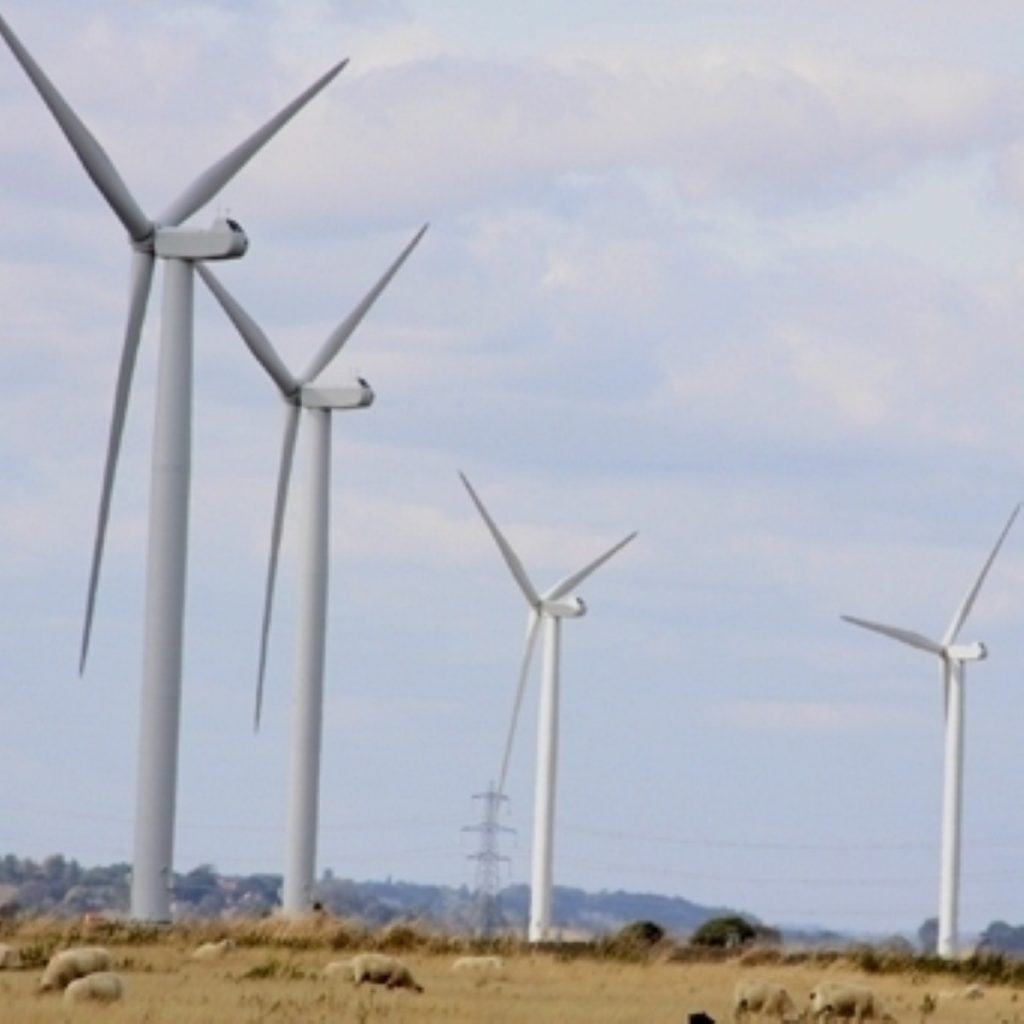Ed Davey: We’ll take onshore wind opponents seriously
By Phoebe Cooke and Alex Stevenson
Ed Davey has acknowledged communities will need more incentives to help persuade them to accept onshore wind farms.
The energy and climate change secretary told a Policy Exchange audience that onshore wind farms were "the cheapest and most mature technology" and that half of the UK's renewable energy was expected to be supplied by wind turbines by 2020.
But he cautioned that critics of wind farms needed to be respected and not simply dismissed as 'nimbys'.


"The opposition has to be taken seriously", the energy minister said. "We have to listen to people's concerns and respond appropriately."
Cashback, energy bill reductions, investment in local communities and job growth are all being talked about as possible options, but the government is not offering a clear way forward.
When asked by Politics.co.uk how community input into onshore wind farm development would work in practice, Davey said the debate would be between the communities and the developers – and that it would not be helpful for the government to impose strict regulations on how the dialogue progressed.
"We shouldn't be restrictive and say communities should act like this or that," he said.
Eighty per cent of the population supported renewable energy, with 65-70% in favour of onshore wind. But Davey said community acceptance is the key for the future development of wind farms.
Many Conservative backbenchers are deeply hostile to wind energy and even proponents of renewable energy like Tim Yeo, the former energy and climate change committee chair, have opposed proposals in their back yard.
"I think people will get more used to all these things and they may also see where the overriding national need is," Yeo told Politics.co.uk in his last major interview before being caught in a lobbying sting.
"They could be persuaded to see that perhaps more clearly if they are offered a more direct share of the benefits."
Dr Richard Cowell, reader in environmental planning at Cardiff University, warned that one problem of financial benefits for those affected was that "communities and companies do not like being told where to put the money".
David Cameron has indicated his willingness to offer communities incentives on a range of issues.
Incentives broached by the three speakers included what Davey termed 'individualistic' benefit, for example reduction in locals' energy bills, as well as money going to broader community projects. Community investment and part ownership in the wind farms was also broached as an idea for making locals more at ease with development.
Conservative backbencher Anne Main raised the issue in relation to "a strategic piece of infrastructure" – like HS2 – in prime minister's question's last week, but Cameron chose to focus his reply on energy issues.
"We need to keep this under active review, particularly with a view to how we are going to handle fracking and shale gas, for instance, where we might need a simpler and more direct mechanism to make sure that communities feel the real benefit of things that benefit the economy overall," he told MPs.

